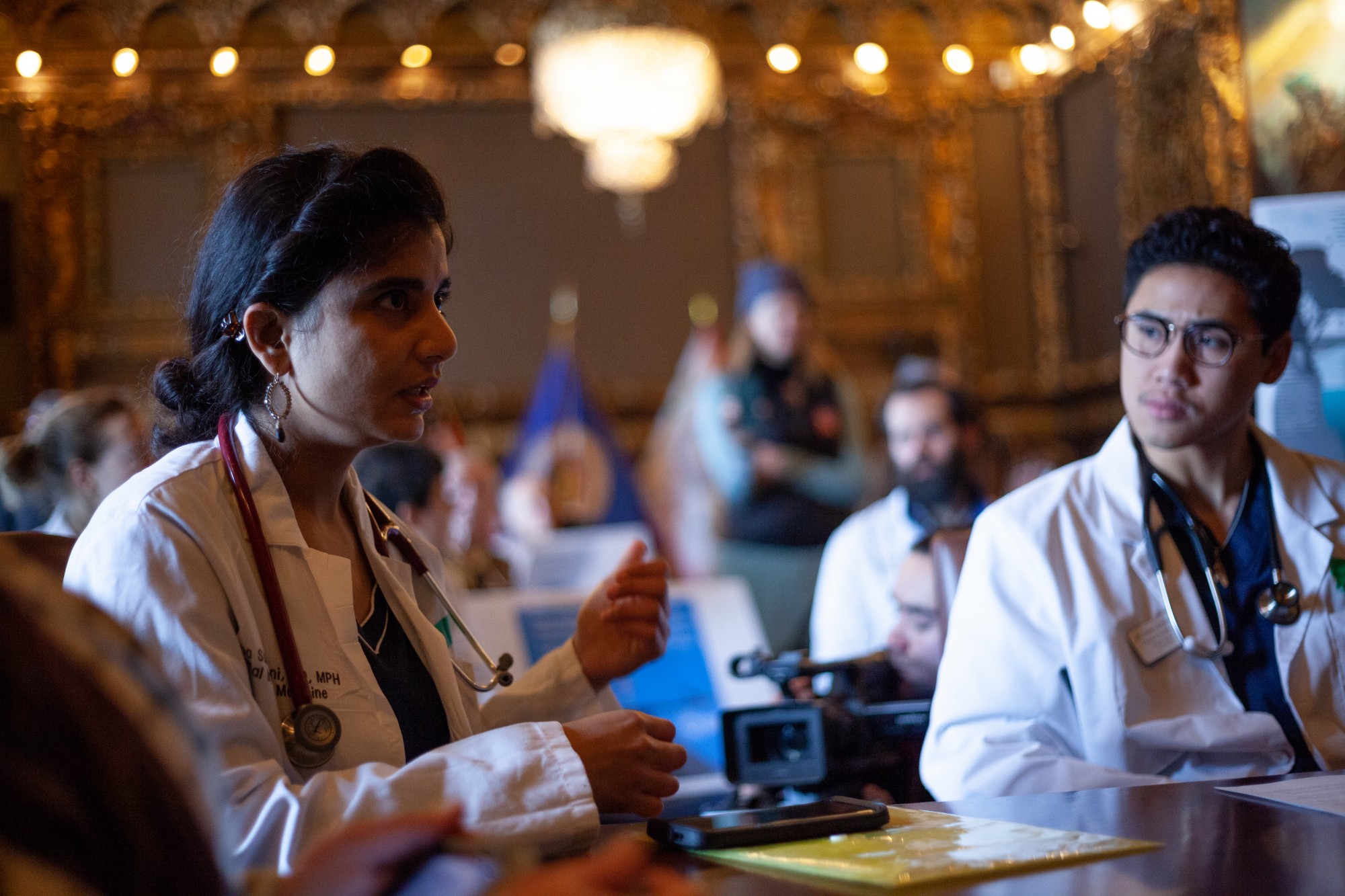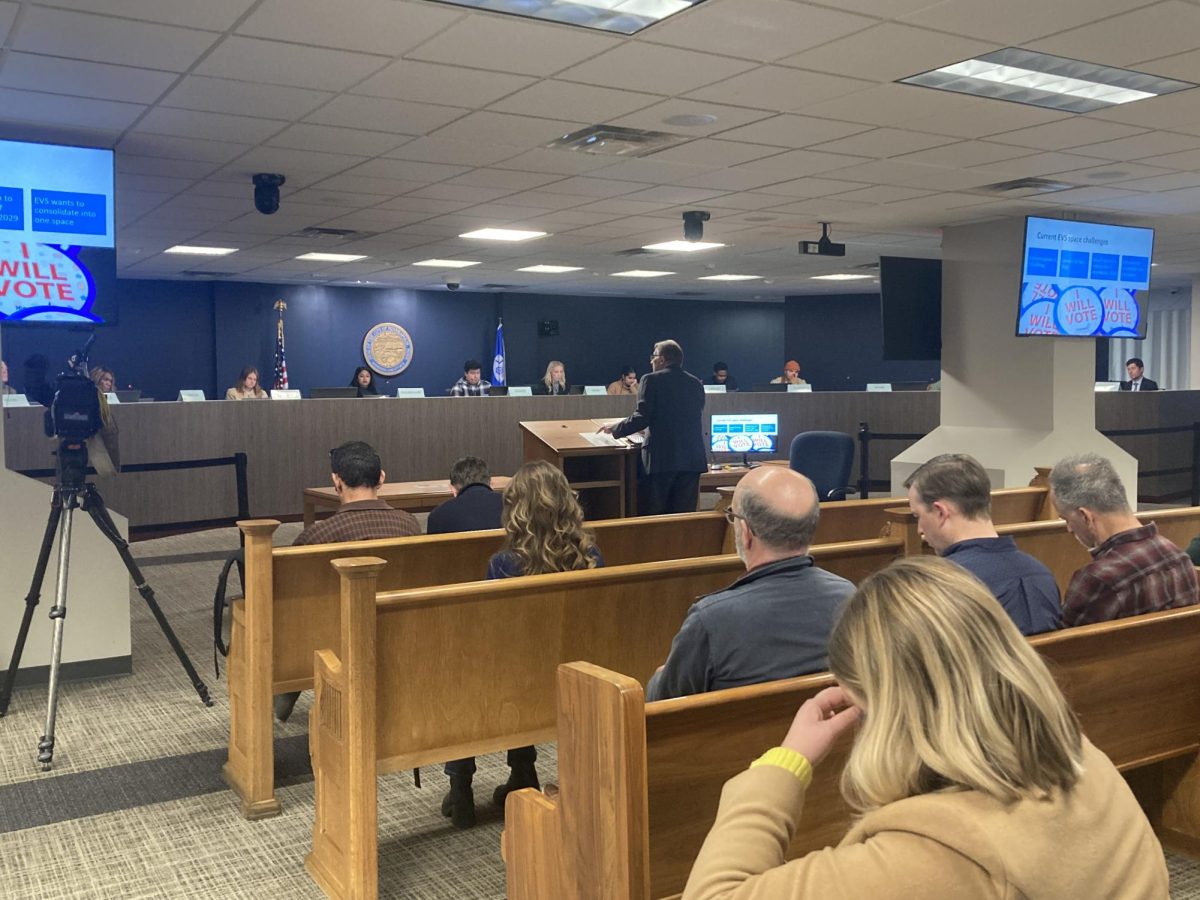Braving the cold Wednesday morning, more than 20 health professionals, students and climate advocates around Minnesota held a teach-in at the Minnesota State Capitol, educating senior staffers about the potential risks of a proposed replacement oil pipeline.
The new Line 3 pipeline, if approved, would carry about 32 million gallons of tar sands oil per day from Canada through Minnesota and into Superior, Wisconsin. It would carry approximately twice as many gallons per day as it does currently.
Dressed in long white lab coats and heavy parkas, health advocates held up colorful poster boards with graphics and charts explaining the various health impacts of the pipeline. Speakers also shared their research, personal stories and concerns about the threat the pipeline poses to residents throughout the state.
The event acted as a place where health professionals from a variety of medical backgrounds came together and educated the public on the ever-pressing issue of climate change, something that doesn’t happen often in the health field, experts said.
“The health impacts of climate change will impact all of us,” said Laalitha Surapaneni, an executive community member of Healthy Professionals for a Healthy Climate and a University assistant professor. “We wanted to highlight, in a nonpartisan way, that this is a health emergency and that we need to focus on making sure we protect biodiversity and human health.”

Some of the health impacts professionals at the event said they have seen in their practice include respiratory problems from smoke inhalation, declining mental health and more seasonal allergies caused by flooding and mold.
Due to degradation of the current pipeline over time, the amount of tar sands oil Enbridge Inc. can transport has gone down. The company says that the new pipeline would transfer more oil more efficiently.
As one of the most carbon-intensive fuels on Earth, tar sands oil is difficult to remove if spilled, and spills have caused long-term health problems.
“Advocating for our patients’ health is a very critical part of our role as physicians,” Surapaneni said, adding that policy change is necessary to create a better health outcome for the population.
Thaius Boyd, a first-year medical student at the University of Minnesota-Duluth who spoke at the teach-in, said the proposal of a Line 3 replacement pipeline is emblematic of a larger push to continue Minnesota’s reliance on fossil fuels.
“We are at this point where we can really be the epitome of renewable energy in terms of leading other states into the renewable future,” Boyd said.
Having spoken to members of the Fond du Lac Band of Lake Superior Chippewa in Northern Minnesota, Boyd said the new pipeline will be especially disruptive to Indigenous communities as well.
The path of the proposed Line 3 will come within 0.5 miles of 17 wild rice water bodies throughout the state, according to Health Professionals for a Healthy Climate. Its proximity would increase the risk of land and water pollution, including wild rice fields, which hold significant cultural, economic and nutritional value for many tribes.
Although the expansion of Line 3 will create additional jobs and allow Enbridge Inc. to transport significantly more tar sands oil than before, Brenna Doheny, interim coordinator at HPHC, said the potential dangers greatly outweigh the benefits.
“More health professionals and scientists are coming forward and speaking up because we have a responsibility,” Doheny said. “The problem of climate change involves all of us, and it requires all of us to come together and create solutions.”








